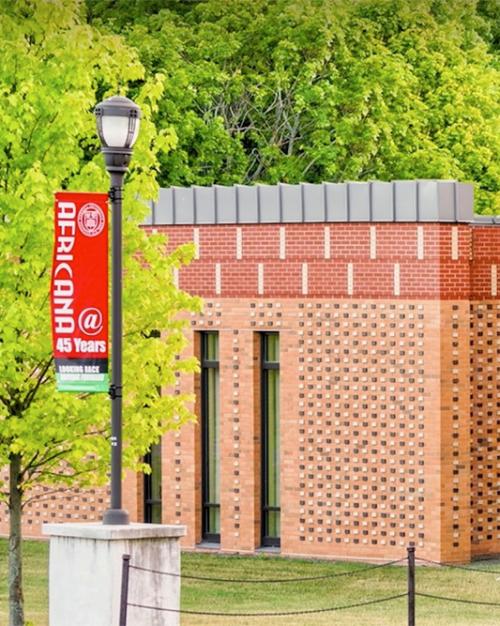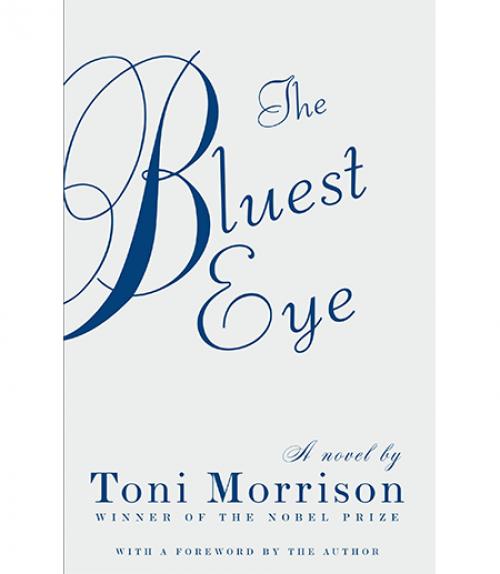Faculty members planning this year’s Cornell Celebrates Toni Morrison series have spent considerable time discussing how to handle, for a general audience, the brutal language of racism and scenes of sexual violence in “The Bluest Eye.”
The book will be read in its entirety in an Oct. 8 livestream event, featuring authors, poets, scholars and members of the Cornell and Ithaca communities. At the end of the lengthy discussion, faculty members decided to read aloud every word of the book.
Faculty members agreed to include robust warnings throughout the reading and in advance so that listeners will be aware of the language and scenes of sexual violence.
Here are some of their thoughts:
From Anne Adams, professor emerita of Africana studies:
“For me the issue is fidelity to the text of the author we are celebrating, fully aware that numerous elements of the text — not just the eight occurrences of one word — are socially problematic. We recall that ‘The Bluest Eye’ was banned in many places. So, yes, it contains socially objectionable, injurious elements. Yet, we are celebrating its 50th anniversary.
“For me, this means that we, as academics, appreciate this literary work. Do we apologize for its socially problematic elements when we teach the book? Or do we explain their context and their appropriateness in context?
“We must separate an oral rendering of a written work of art from contemporary real-life instances of language contained in it. This means hearing violently racist language spoken within the performance of the literary work and suspending associations with contemporary real life. I feel that, by giving warnings about the language, we are expecting/encouraging our audience to appreciate the artist’s work in its totality and therefore to understand (and not condemn) our intention to render the work as the author gave it to us.”
From Derrick R. Spires, associate professor of English
“This isn’t about censoring what Morrison’s words were, but about pedagogical practice across the country. Students, especially Black students, are often critical about any use of the n-word in the classroom, calling it alienating and violent.
“From my perspective, it’s important to note that the occurrences of the n-word in 'The Bluest Eye' weren’t in the familial/term of endearment category, but rather used in explicitly anti-Black ways to denigrate someone. I don’t speak the word aloud in the classroom, because students have read the work, and I don’t see the pedagogical value of my or anyone else in that space then saying it out loud.
“My read is that Morrison is capturing that element of the term—how language enacts white supremacist and anti-black violence and how Black characters in the novel take up, internalize, and deploy that violence against each other. The question for me is: does reading the word aloud, in an open public forum, reenact this violence for some of our audience?”
From Carole Boyce Davies, Frank H.T. Rhodes Professor of Humane Letters and professor of Africana studies and English
"I am not in favor of censoring Toni Morrison in any way.
“Morrison would have had fun just listening to the nature of our conversation,” Boyce Davies said, adding that her position against censoring was because there have been myriad attempts to censor Toni Morrison already and that Morrison herself has addressed this question of censorship in the recent documentary on her life, “The Pieces I Am.”
From Riché Richardson, associate professor of African American literature:
“There is a rationalization of what is considered hate speech and a level of conflation in the discourse at the university level between free speech and hate speech, as well as a misunderstanding about why this language is so abusive to certain students on campus.”
From Shirley Samuels, professor of English:
“In the years that I have taught Toni Morrison to students I have changed my approach. Even as I tell students that it helps to read the books aloud, both to capture nuance and to enter into dialogue with the text, and even as my practice has been to not ever censor any writer, my approach to reading aloud in the classroom has changed. Now I will say to my students that within the classroom it matters that they have a choice to substitute more neutral language. I want to recognize their discomfort if they choose not to use those words. For me, the word we have been discussing is an obscenity and it provokes traumatic reactions.”





